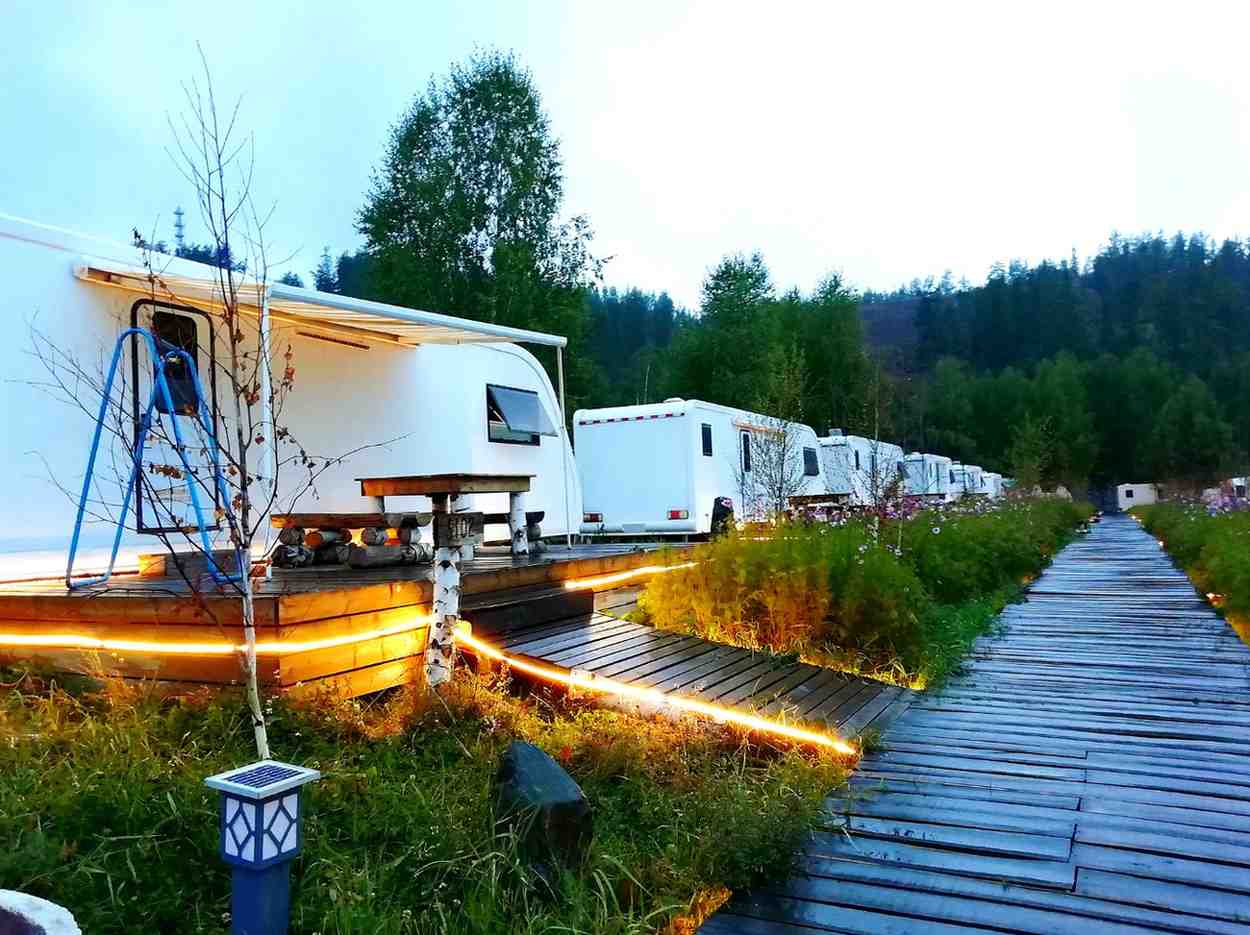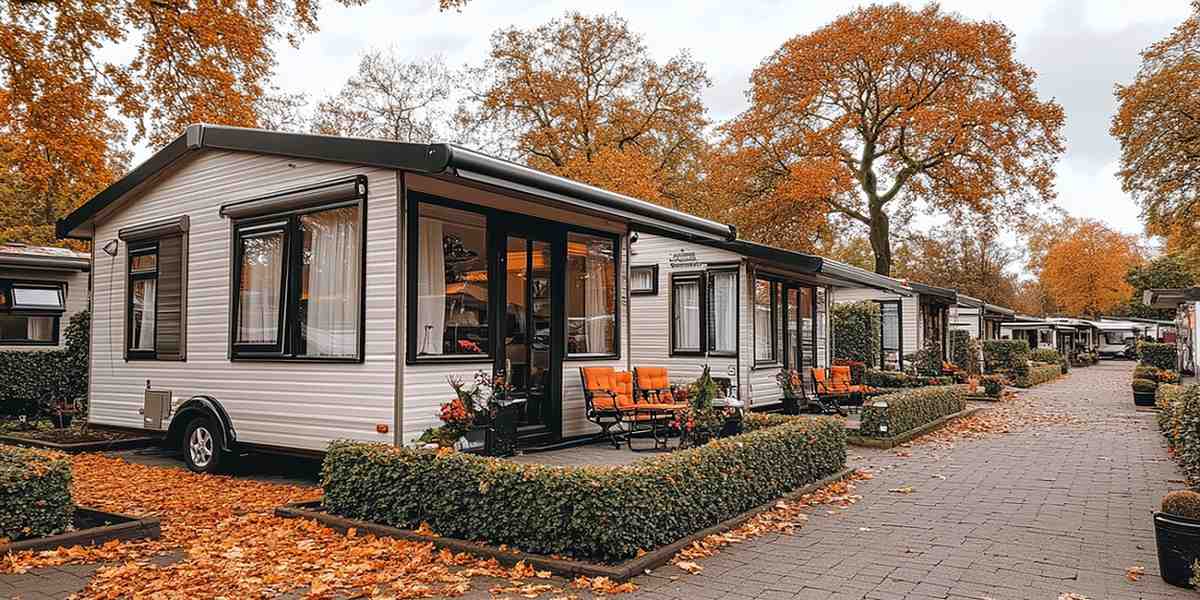Buying a mobile home can seem like an affordable path to homeownership — especially when traditional housing prices are skyrocketing. The idea of getting your own space at a fraction of the cost is appealing. But here’s the truth many buyers discover too late: the hidden costs of buying a mobile home can add up fast.
While the initial price tag might look manageable, there are several expenses—both upfront and ongoing—that can significantly affect your budget. Understanding these hidden costs can help you make a smarter, long-term investment.
Understanding the True Cost of a Mobile Home
A mobile home’s advertised price usually covers just the structure itself. But once you account for land, permits, setup, and maintenance, the actual cost can rise by 20%–40%.
Below is a quick comparison of typical upfront vs. ongoing expenses:
| Expense Type | Example Costs (Approx.) | Frequency | Notes |
| Registration & Stamp Duty | 4–5% of home value | One-time | Varies by state and property type |
| Brokerage Fees | 1–2% of home value | One-time | Only if using a real estate agent |
| Land Lease or Purchase | $300–$800/month (lease) or full cost of land | Monthly or one-time | Depends on ownership |
| Transport & Setup | $3,000–$10,000 | One-time | Includes moving and site prep |
| Maintenance & Repairs | 1–2% of home value/year | Annual | Routine care and major fixes |
| Insurance Premiums | $800–$1,500/year | Annual | Higher for older mobile homes |
| Utilities & Community Fees | $100–$400/month | Monthly | Includes water, trash, and space rent |
| Upgrades & Improvements | $500–$5,000+ | As needed | Depends on materials and condition |
Upfront Costs You Shouldn’t Ignore

Taxes and Legal Fees
Just like any property purchase, you’ll need to factor in registration charges, stamp duty, and sometimes attorney or notary fees. In most states, these can total around 5% of the property’s value. These fees ensure the home is legally registered and compliant with housing codes.
Brokerage and Commissions
If you work with a real estate agent or broker, expect to pay 1–2% in commissions. While you might consider skipping this step to save money, an experienced agent can help negotiate land terms or spot red flags in mobile home listings.
Land Purchase or Lease
One of the biggest hidden costs of buying a mobile home is the land situation. If you don’t already own the land, you’ll need to either buy a lot (which can cost as much as the home itself) or lease land in a mobile home park. Land leases typically range from $300 to $800 per month, depending on the park’s location and amenities.
Transportation and Setup
Once purchased, your home must be moved and installed—an expense many first-time buyers overlook.
Transporting a mobile home can cost anywhere from $3,000 to $10,000, depending on distance and complexity. Add setup fees for foundation, anchoring, and utility hookups, and your initial outlay increases substantially.
The Ongoing Costs That Add Up Over Time
Maintenance and Repairs
Unlike traditional homes built on permanent foundations, mobile homes often require regular maintenance to prevent major issues. Common tasks include resealing the roof, repairing skirting, maintaining HVAC systems, and checking for moisture buildup. Expect to spend about 1–2% of the home’s value annually on maintenance.
Insurance Premiums
Mobile homes are considered higher risk by insurers due to factors like wind damage and aging materials. As a result, homeowner’s insurance can be more expensive or harder to obtain—especially if your home is older or located in a high-risk area. Premiums average $800 to $1,500 per year, but can exceed that for older units.

Utilities and Community Fees
If you live in a mobile home park, you’ll likely pay for utilities, trash collection, and community maintenance fees. Some parks also charge for parking spaces, pet ownership, or shared amenities like clubhouses and pools. Expect monthly costs to range between $100 and $400, depending on the park.
Depreciation
Unlike site-built homes, mobile homes typically lose value over time. Their materials and construction methods make them more prone to wear and tear. This means your mobile home may depreciate like a vehicle—impacting future resale value and financing options.
Upgrades and Improvements
Mobile homes often use lightweight or budget materials to reduce manufacturing costs. Over time, you may find yourself replacing flooring, insulation, roofing, or plumbing fixtures sooner than expected. These improvements can easily cost $500 to $5,000 or more, depending on the scope.
Long-Term Financial Considerations

Financing Challenges
Getting a loan for a mobile home can be more complicated than for a traditional home. Many lenders treat mobile homes as personal property, not real estate—especially if they’re not permanently affixed to land. This means higher interest rates and shorter loan terms, which increase your total repayment cost.
Resale and Value Retention
A key hidden cost is depreciation in resale value. A mobile home may lose up to 30–50% of its value within the first decade, depending on upkeep and market demand. If you plan to sell later, don’t expect appreciation like with a conventional home.
Location Dependence
Your costs will vary drastically based on location. For example, states with higher property taxes or stricter zoning regulations can push your total costs up. Similarly, rural or remote areas may charge more for transport and setup.
How to Reduce the Hidden Costs

- Buy land with the home whenever possible. This gives you ownership stability and better resale potential.
- Inspect before buying. Hire a licensed home inspector who specializes in mobile homes to identify potential repair or compliance issues.
- Shop around for insurance. Compare quotes from insurers that specialize in manufactured housing.
- Negotiate park lease terms. If renting land, check for hidden charges like maintenance or amenity fees.
- Budget realistically. Plan for an additional 15–20% above the listed price to cover all extras comfortably.
Also Read: is tissue paper recyclable
FAQs About the Hidden Costs of Buying a Mobile Home
Are mobile homes cheaper to maintain than traditional houses?
Not necessarily. While initial costs are lower, maintenance can be frequent due to lighter materials and exposure to environmental wear. You may end up spending a similar annual percentage on upkeep.
Do mobile homes lose value quickly?
Yes, most mobile homes depreciate over time, particularly if they’re not placed on owned land. Homes on permanent foundations tend to retain value better.
Can I get a mortgage for a mobile home?
It depends. If your mobile home is permanently attached to owned land, it may qualify for a traditional mortgage. Otherwise, you might need a chattel loan, which often comes with higher interest rates.
What’s the average cost to move a mobile home?
Transport and setup typically cost $3,000 to $10,000, depending on distance, permits, and labor. Larger or double-wide homes can cost even more.
How can I avoid unexpected costs when buying a mobile home?
Research park fees, insurance requirements, land lease terms, and setup costs before purchase. Always read contracts carefully and get written estimates for all work.
Final Takeaway: Budget Beyond the Sticker Price
Buying a mobile home can be a smart financial decision—but only if you understand the full picture. The hidden costs of buying a mobile home can quietly transform a budget-friendly purchase into a costly commitment.
Take the time to research, inspect, and calculate both upfront and long-term expenses. When you plan ahead, you can enjoy the flexibility and freedom of mobile home living without unpleasant financial surprises down the road.




